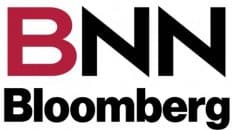Regina / 980 CJME
Adriana Christianson
April 19, 2018 02:21 pm

One oil industry analyst attributes the rising price at the gas pumps to rising demand from overseas markets for U.S. refineries.
Roger McKnight is a senior petroleum analyst at Enpro International and joined guest host Murray Wood on Gormley Thursday morning to talk about the latest hike in gas prices — up to about $1.23 in Saskatoon and Regina.
“The wholesale price in Regina, Saskatoon, Calgary and Toronto is the same at 83 cents, do the math,” McKnight commented.
The wholesale price is what the refineries charge before taxes and any retail margins, which are normally around 12 cents per litre, in order to cover business costs and make a profit.
McKnight said contrary to popular belief, gas prices in Canada are not really set in Canada and they follow the U.S. markets. On the prairies, they match up with Minneapolis.
The price of crude oil has increased by about 13 per cent year over year, while the price of gas has gone up by 20 per cent. McKnight noted the reasons for this pricing phenomenon are complex. He links it back to President Obama lifting the ban on foreign exports of oil, saying that “opened the floodgates” for an export market to Europe, the Caribbean and China.
“To keep the product in the domestic market, we have to increase our refining margins, and that’s the nuts and bolts of it,” McKnight explained.
He said the profit margins for refineries have grown to about 23 cents per litre, compared to past years where profit margins were closer to 10 cents. He said refineries justify increasing the price because overseas markets have high demand and will pay more.
The prices are driven up by demand for gas remaining constantly high on domestic and foreign markets.
“The demand for gasoline is way up there. You’ve got demand there, you’ve got an alternative market for U.S. refiners and the Canadian refiners will say ‘well if they’re making X amount in the States we’re going to have to make the same amount up here north of the border,’ because most of the refineries north of the border here in Canada are foreign owned,” McKnight said.
While $1.23 per litre may be frustrating to some drivers, McKnight commented Saskatchewan consumers are lucky because they don’t have to deal with an added carbon tax on gas.
In addition to taxes, McKnight said the low value of the Canadian dollar also plays a significant role in gas prices in Canada.
He adds the geopolitical tensions around trade and the Organization of Petroleum Exporting Countries discussing moving the price of oil higher, all could signal more increases in gas prices.
“What you’re seeing today, I think may be a bit of a bargain in the next three or four weeks and maybe a slight drop in the summer, but not much at all,” McKnight said.








Add comment